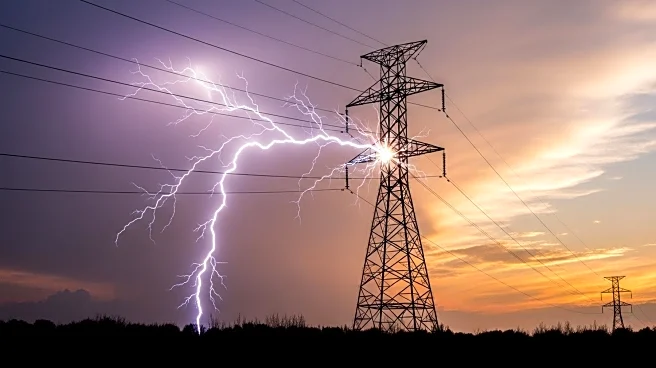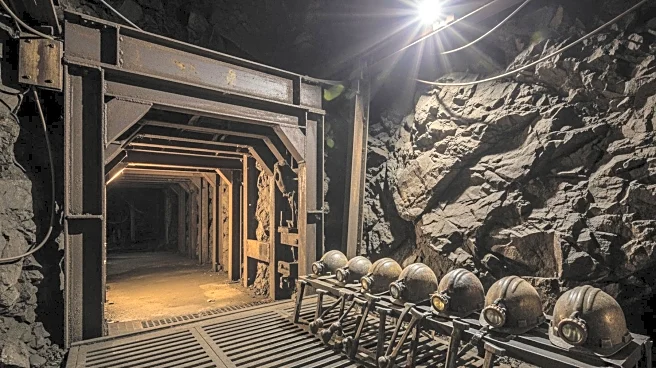What is the story about?
What's Happening?
Southern California Edison is set to increase customer bills by nearly 10% next month, following approval from the California Public Utilities Commission. This hike will raise the average residential bill by $17 a month, totaling approximately $200 annually. The increase is part of a general rate case where utilities propose necessary spending to maintain the electrical grid over the next four years. Edison has requested to spend $9.8 billion this year, a 13.7% increase from last year. The company faces criticism from customers, especially those affected by the Eaton fire, which was allegedly sparked by Edison equipment. Despite increased spending on fire prevention, Edison equipment ignited 178 fires last year, up from 90 in 2023.
Why It's Important?
The rate hike is significant as it impacts a large number of Edison customers, many of whom are already struggling with unpaid bills. The increase is intended to support a reliable electric grid and facilitate the transition to clean energy. However, it raises concerns about affordability and the effectiveness of Edison’s fire prevention measures. The company’s equipment has been linked to several catastrophic fires, leading to lawsuits and increased scrutiny. The decision to pass fire damage costs onto customers is controversial, highlighting the tension between utility operations and consumer protection.
What's Next?
The California Public Utilities Commission is scheduled to vote on the proposed rate hike. If approved, Edison will implement additional increases for inflation through 2028. The company also plans to introduce a $24 monthly fixed charge in November, affecting customers with low electricity usage. Edison is seeking further rate increases to cover wildfire damages and boost investor profits. The commission’s decisions will influence the financial burden on customers and the company’s ability to invest in infrastructure improvements.
Beyond the Headlines
The ongoing debate over utility rate hikes underscores broader issues of energy policy and climate resilience. As California faces increasing wildfire risks, utilities are under pressure to balance safety investments with cost management. The situation raises ethical questions about corporate responsibility and the equitable distribution of costs. Long-term shifts in energy consumption patterns and regulatory frameworks may be necessary to address these challenges effectively.















